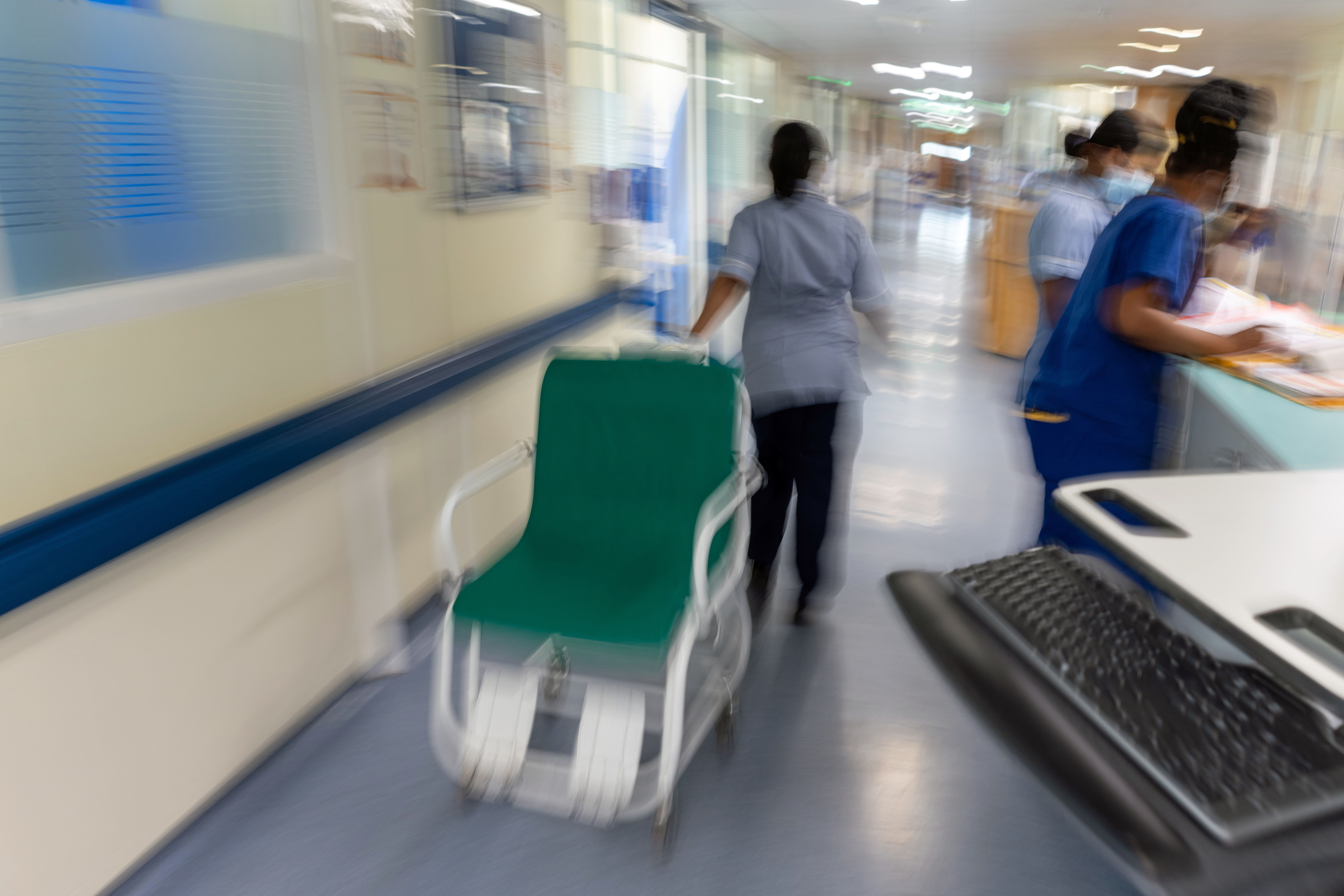‘Fifth of UK hospitals cancelled operations’ during three days of 2022 heatwave
The findings are based on surveys from surgeons, anaesthetists and critical care doctors working during the heatwave from July 16-19 2022.

Your support helps us to tell the story
From reproductive rights to climate change to Big Tech, The Independent is on the ground when the story is developing. Whether it's investigating the financials of Elon Musk's pro-Trump PAC or producing our latest documentary, 'The A Word', which shines a light on the American women fighting for reproductive rights, we know how important it is to parse out the facts from the messaging.
At such a critical moment in US history, we need reporters on the ground. Your donation allows us to keep sending journalists to speak to both sides of the story.
The Independent is trusted by Americans across the entire political spectrum. And unlike many other quality news outlets, we choose not to lock Americans out of our reporting and analysis with paywalls. We believe quality journalism should be available to everyone, paid for by those who can afford it.
Your support makes all the difference.A fifth of UK hospitals were forced to cancel operations during the three days in July last year when temperatures soared, research suggests.
The findings, published in a letter to the British Journal of Surgery, are based on surveys from surgeons, anaesthetists and critical care doctors working during the heatwave from July 16-19 2022 – when temperatures reached as high as 40C in some parts of the country.
The researchers received 271 responses from 140 UK hospitals – with one in five (18.5%) reporting elective surgeries being cancelled due to the heatwave.
A further third (35.1%) of hospitals would have had to cancel surgery had the high temperatures continued, the findings revealed.
This is because NHS buildings are not set up to withstand dangerously high temperatures, the researchers said.
Staff shortages (35.8% of respondents), unsafe theatre environments (30.3%), and bed shortages (22.1%), were also found to have contributed to the cancellations.
The likelihood of extreme weather events is growing - we could find ourselves in both a 'winter' and 'summer' stress situation within the next few years
The respondents also said surgical services were poorly prepared for heatwaves, with 41% of operating theatres having no means to control ambient temperature, while more than a third (35.4%) reported making changes to maintain routine surgical activity during the period.
These include delayed discharge of high-risk patients, changes to surgical teams, selecting lower-risk patients to have surgery, and restricting surgical activity to day cases.
Other measures included longer staff breaks, extra fluids to patients, and surgeries earlier in the morning when temperatures were lower.
James Glasbey, NIHR doctoral research fellow in global surgery at the University of Birmingham, and co-author of the letter, said: “Even short heatwaves may result in widespread disruption to surgical services in the UK.
“The likelihood of extreme weather events is growing – we could find ourselves in both a ‘winter’ and ‘summer’ stress situation within the next few years.
“As hospitals tackle post-Covid surgery backlogs, they must consider how to safeguard against further climate change-related disruption to the delivery of surgical services.
“This should be included in the preparation of ‘summer pressure’ plans to improve the resilience of elective surgery services.”